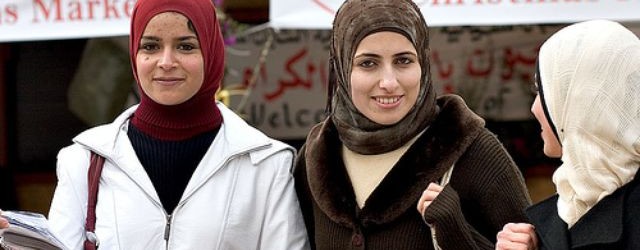
By: Athar Osama
Published in SciDev.Net (on 3 November 2006)
A study of scientific research in the Muslim world shows that it lags far behind the rest of the world, but there are encouraging signs of improvement, says Athar Osama.
For decades, Muslim countries have struggled to understand the value of scientific and technological research. But a recent study by the Organization of the Islamic Conference (OIC) on the status of scientific research in its 57 member states sheds some light on the nature of the ‘science deficit’ in these countries.
The study is the first attempt by the OIC to try and quantify its members’ scientific output and productivity.
Although the results show that many Muslim countries have a poor scientific output, they also indicate a growing realisation among such countries that they must catch up with the rest of the world or lag behind economically, socially and politically.
If Muslim countries are to become innovative and knowledge-based societies of the 21st century, they will need to develop coherent and relevant science and technology policies and create an environment supportive of research.
Science deficits
The OIC study looked at total scientific output of member countries using Thomson Scientific’s Web of Science database, which holds about 8,700 research journals as well as monographs and conference proceedings. Turkey leads the pack by a long way (see Table below).
The figures point to several shortfalls. First, the actual numbers of publications are very small. Muslim countries contribute just 2.5 per cent of more than 11.5 million papers published worldwide each year. This reflects the low value placed on scientific research in general, and publishing research findings in particular, within much of the Islamic world.
It is also clear that the three largest Muslim countries by population — Indonesia, Pakistan and Bangladesh — are not the most scientifically and technologically productive. Indeed, when considering scientific publications per million of population, it is smaller countries like Kuwait that do well.
This disparity between countries suggests that a vast number of Muslims around the world are virtually excluded from the worldwide scientific enterprise.
A closer look at the study’s findings shows that there is also a lack of diversity in subject in scientific publications. While many OIC countries may have small islands of scientific excellence, they seriously lack the broad-based scientific capability and infrastructure needed to see broader societal gains.
In addition, scientists in the Muslim world tend not to publish in some of the technological fields that have contributed to economic growth in the West — for example, semiconductors, information technology, genetics and nanotechnology. This absence represents a weakness in these countries’ ability to translate scientific research into useful technologies that support economic development.
Finally, not one of the 25 most productive (by publication count) scientific institutes in Islamic countries — such as Ankara University, Cairo University or King Fahd University — appear on the list of top institutions worldwide. As scientists’ decisions and motivations are affected by institutional quality, environment and incentives, this institutional deficit may, in part, explain the low scientific productivity in the Muslim world.
Turning the tide
But while the OIC’s findings make for depressing reading, there are some indicators of a change sweeping across the Muslim world. Iran, Pakistan and Turkey show a clear upward trend in scientific output (see Table 1) — all of which have recently made large increases to scientific spending. Pakistan has, for example, increased funding for tertiary education by 5,000 per cent over the last 5-7 years.
Even after adjusting for secular trends in publication counts, the number of annual scientific publications has grown in six of the 15 countries listed in Table 1. Several of these are building up their scientific infrastructure through substantial investments in tertiary education and research.
For example, the Emirate of Qatar, through its Doha Education City, is trying to become the education and knowledge hub of the region. Similarly, Nigeria recently announced plans to invest US$5 billion in science and research over the next decade with the hope of making substantial gains in economic growth and development.
Intelligent policies and patient implementation
But, in order to make the most of these — and other less ambitious — initiatives, the Muslim world will need policies that can support the use and development of science and technology infrastructure.
It must promote academic freedom and set up well-designed research funding programmes, quality educational and research institutes, and offer incentives for undertaking and publishing research.
Islamic countries also need to promote the value of science and technology to the general population. And they must learn to use science to solve socio-economic problems such as disease, resource shortages, and economic development.
Only through an intelligent use of policy, followed by patient and committed implementation, can the Muslim world move out of the scientific backwaters to become equal participants and beneficiaries of the scientific age.
Athar Osama is a senior executive at an international technology commercialization and venture company based in the United States and specialises in technology-based economic development.
You must be logged in to post a comment.